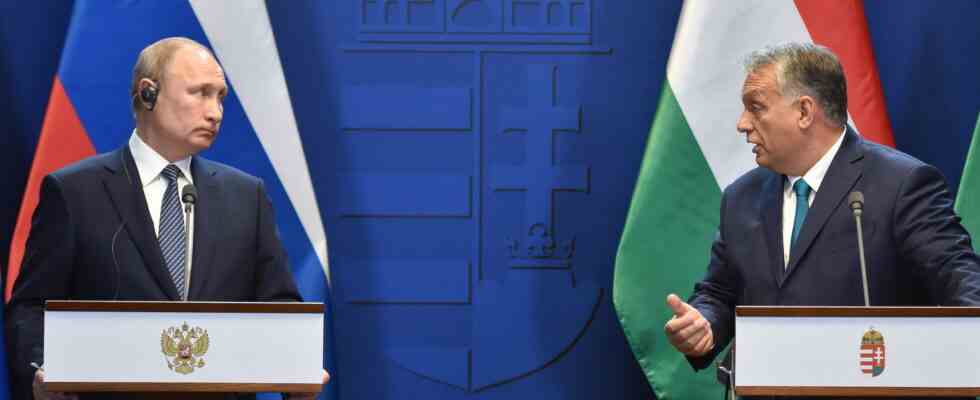analysis
Status: 07.04.2022 5:58 p.m
Orban’s election victory confirms him more than NATO and the EU would like: instead of supporting sanctions, Hungary’s prime minister is demonstratively doing what “President Putin” likes. He only has one goal.
Rarely has Viktor Orban been as important as he is right now – at least that’s how Orban sees it himself. And he is doing a lot to ensure that as many others as possible have this impression, at least in Hungary, where they have just re-elected him again and he is one of the prime ministers can continue to govern with a full two-thirds majority. The Hungarian voters have decided. The election was democratic, at least on election day, according to the OSCE diplomats who had the election observed. However, it was not fair: the opposition had no chance of being heard during the election campaign, which is also stated in the OSCE report.
So there are still many good reasons for the European Union to finally push ahead with the rule of law proceedings against Hungary. They waited a long time in Brussels, also let this parliamentary election pass – and then certainly didn’t get a good time: Orban has rarely felt as strong as he does now. Strong enough to only half-heartedly support EU sanctions against Russia – to the point where it doesn’t hurt Hungary. So no embargo on oil and gas supplies, because Hungary’s economy is largely dependent on it.
Hungary gives up – and pays in rubles
Of course, Orban also refers to other EU partners who have difficulties with this. But: Solidarity in a community of values looks different. To do this, however, one would have to represent the same values. But Hungary is demonstratively doing what the other EU countries won’t do in order not to unnecessarily strengthen Russia and to give the elite around Vladimir Putin as little chance as possible to circumvent sanctions: pay Hungary’s gas and oil bills in rubles instead of euros , as Putin demands.
Russia has always behaved correctly towards Hungary, says Orban. Which may be true, but sounds cynical in view of the atrocities in Russia’s war of aggression against Ukraine, which have caused all other EU partners to escalate sanctions to the next level.
Full-bodied negotiation offers
Under Orban, Hungary is also not allowing weapons to be delivered – neither directly to Ukraine nor via Hungarian territory. He calls it “staying neutral” – and his election victory confirms him more than NATO and the EU would like. But Orban doesn’t want to discuss his interpretation of NATO loyalty for long, preferring to tell his own story: Putin was one of the first to congratulate him on the election victory – and then had time for a very long phone call with Orban, he reports with a tired look .
As in the election campaign, he is concerned with nothing less than “war or peace”; That’s why he urgently advised “Mr. President Putin” – who calls him on the first name terms – for an immediate ceasefire. And invited him to Budapest for talks on a ceasefire, together with Ukrainian President Volodymyr Zelenskyy, but also with French President Emmanuel Macron and German Chancellor Olaf Scholz. The old Normandy format, which eight years ago was about the fate of Ukraine. It’s just unfortunate that Orban initially only discussed it with Putin.
Goal: Secure privileges for Hungary
The Ukrainian government called it “cynical”. Textbook power politics. Orban is trying to use his window of opportunity: Strengthened by the election victory and a Hungarian opposition that has once again fragmented into insignificance and is at odds with each other, he continues to ignore everything the EU stands for: common values such as democratic rule of law and the aid coalition against Russia’s war against the Ukraine he subverts.
Orban’s role as a mediator, with the help of his privileged partnership with Russia, is a staging with which he wants to continue to secure EU funds for Hungary in the future.

